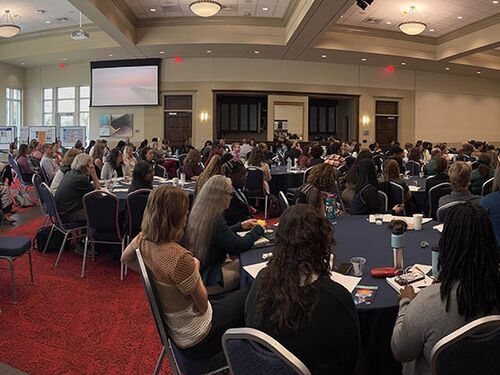U.S. Global Change Research Program Should Shift Focus to Preparing for and Avoiding Worst Potential Consequences of Climate Change, Says New Report
News Release
By Megan Lowry
Last update March, 16 2021
WASHINGTON — As it drafts its next decadal strategic plan, the U.S. Global Change Research Program (USGCRP) should shift its focus to providing insights that help society prepare for and avoid the worst potential consequences of climate change, while protecting the most vulnerable, says a new report from the National Academies of Sciences, Engineering, and Medicine. Traditional climate research that projects changes in the natural environment to estimate potential consequences is not meeting the needs of decision-makers as they respond to the climate crisis, the report says.
Global Change Research Needs and Opportunities for 2022-2031 recommends USGCRP accelerate research on the multidirectional relationships among human and natural systems to advance our understanding of how to manage urgent current and future climate risks. Our food availability, for example, depends on a complex interaction between natural systems, such as the carbon and water cycles, and aspects of human systems, such as population growth or farming practices.
The report calls on USGCRP to focus specifically on urgent climate risks to the security and well-being of Americans — including their health, food, energy, water, and economic security. Risk management should emphasize protecting the most vulnerable and addressing the underlying drivers of vulnerability, particularly inequity and exclusion.
USGCRP is an interagency program that is mandated to coordinate research across 13 federal agencies. Research fostered by USGCRP has shaped our understanding of climate change, and represents an unprecedented effort to observe, understand, predict, and project global changes. The committee that wrote the report is tasked with advising USGCRP as it begins development of its next decadal plan, due to be completed in 2022.
“The time has come to urgently increase our country’s investment in global change research to produce knowledge that is more useful for decision-makers leading the response to the climate crisis,” said committee chair Jerry Melillo, distinguished scientist at the Marine Biological Laboratory. “Today’s decisions require research that considers the global, intricate relationship between society and the natural world, as well as the effects of our response to climate change.”
“Shifting to this new frame of thinking about risk will require that global change research prioritize justice, work with communities to produce this research, increase transparency, and be flexible and adaptive to new findings,” added Kristie L. Ebi, vice chair of the committee and professor in the department of global health and the department of environmental and occupational health sciences, University of Washington.
Adaptation and Mitigation
The report also calls on USGCRP to prioritize research on managing urgent climate threats through mitigation and adaptation. The consequences and outcomes of these activities — such as reaching net zero carbon emissions or building resiliency in coastal communities — are complicated, and a new research approach is needed to better understand how to facilitate effective, fair, and inclusive decision-making processes, including managing synergies and trade-offs.
Increased Emphasis on Social Science
Investments in social science research are needed to better understand the socio-economic consequences of climate change, as well as the behavioral, institutional, and political drivers of climate change. Climate change will affect migration, global security, supply chains, governance, human health, the insurance industry, and a host of societal issues — and the report notes that these consequences will unfold differently for different social groups.
Crosscutting Research
The report also recommends USGCRP expand research in five crosscutting areas to address climate change risks: extremes, thresholds, and tipping points; simulation of regional and local climate impacts; scenario-based climate projections and management; equity and social justice; and advanced data and analysis frameworks.
The study — undertaken by the Committee to Advise the U.S. Global Change Research Program — was sponsored by the USGCRP. The National Academies of Sciences, Engineering, and Medicine are private, nonprofit institutions that provide independent, objective analysis and advice to the nation to solve complex problems and inform public policy decisions related to science, technology, and medicine. They operate under an 1863 congressional charter to the National Academy of Sciences, signed by President Lincoln.
Contact:
Megan Lowry, Media Officer
Office of News and Public Information
202-334-2138; e-mail news@nas.edu
Featured Publication
Consensus
·2021
The US Global Change Research Program (USGCRP) is a collection of 13 Federal entities charged by law to assist the United States and the world to understand, assess, predict, and respond to human-induced and natural processes of global change. Global Change Research Needs and Opportunities for 2022-...
View details



